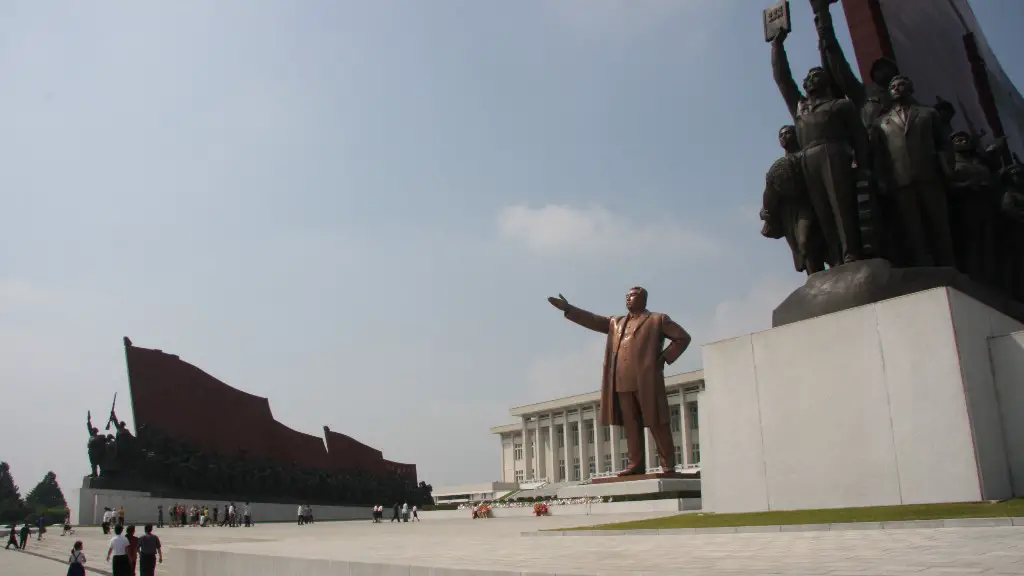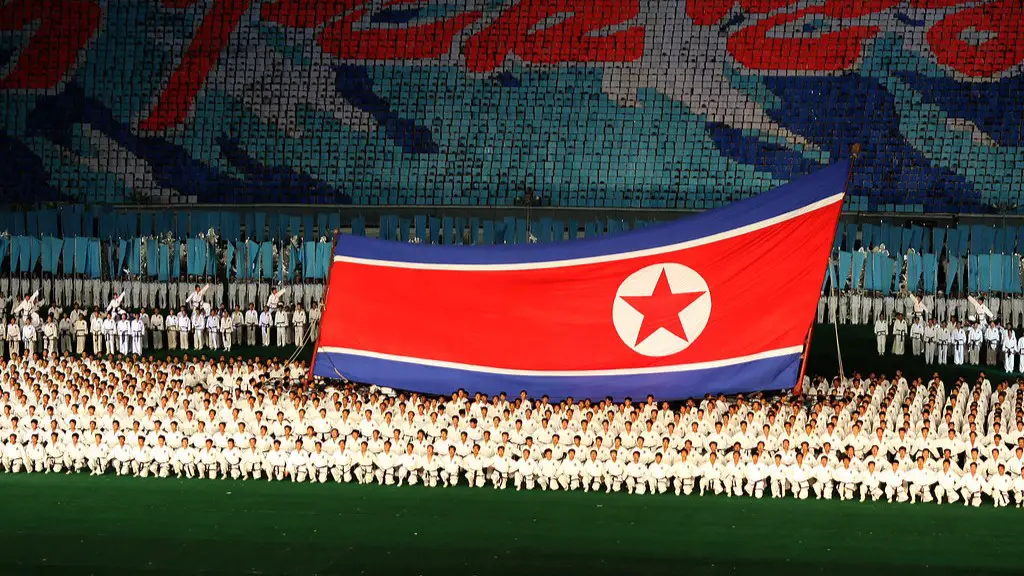The world has been captivated by the strange and unpredictable behavior of the North Korean administration, particularly considering the power and the aggressive attitude of their chairman, Kim Jong-un. This has made many in the international community consider the possibility of invading the country as an option for bringing them into the international fold. There are several reasons why an invasion of North Korea is generally seen as an ill-advised approach and is instead met with diplomatic initiatives.
From strategic, political and logistical perspectives, an invasion of North Korea is often seen as extremely difficult, if not impossible to be successful. North Korea is the world’s most heavily militarized country, and it’s estimated that the number of military personnel, along with civilian militias could easily exceed 1.2 million. This puts them in a significantly advantageous position, as they are able to significantly outnumber and outgun any invading force that would be sent into the country.
In addition to this, North Korea’s military is well-equipped with modern weapons and military technology. The country is home to the world’s fourth largest stockpile of chemical weapons, and it has an advanced rocket program. North Korea also possesses a number of potential nuclear warheads, making any military action a potentially catastrophic and unfeasible solution for the problem.
From a political standpoint, it can be argued that an invasion of North Korea would do more harm than good, as it would likely destroy whatever diplomatic efforts have already been made in the country. The international community has already been working to try and persuade North Korea to change their stance towards the nuclear proliferation and reform their human rights abuses, but any attempts at diplomacy have failed so far.
It is also important to consider the geopolitical ramifications of a potential invasion of North Korea. Any such venture would almost certainly be supported by the United States and its allies, who are already involved in a complicated and tense standoff with China and Russia over summit issues like trade and security. An invasion of North Korea would only serve to further complicate this delicate situation, as it would give China and Russia an opportunity to increase their influence in the region.
Finally, any military action, let alone an invasion of North Korea, would likely lead to a humanitarian disaster, as the country’s vulnerable population could be exposed to the trauma of war. North Korea is already one of the poorest countries in the world, and any military conflict would largely devastate the already fragile North Korean economy, leading to a humanitarian crisis that could take years to correct.
North Korea’s Risk Factor
The primary risk factor associated with a potential invasion of North Korea is the serious and potentially catastrophic repercussions it would have on the global environment. A war in the region would escalate quickly and could even spark a world war, as various countries such as China and the United States would be naturally inclined to become involved. This would lead to a further disruption to global economic and political relationships, not to mention the cost of the war itself in terms of resources, money and human lives.
Even in the unlikely event that a victorious invasion could be accomplished, the difficulty of occupying and governing the North Korean population may outweigh the benefits of intervening. North Korea is largely a closed country, and its people have been subjected to extreme propaganda for generations. This means that occupying forces would face a major task in order to re-educate the populace and bring the country into a more western-friendly stance.
The final risk factor connected with invading North Korea is the potential of relying on a military solution to a diplomatic problem. The world has seen in wars across the world, such as have been fought in Iraq and Afghanistan – that attempting to impose a military solution to a social problem will only further entrench the conflict and make it more difficult to solve.
International Negotiations
Instead of relying on a military solution, the international community must work together towards a diplomatic resolution that can result in real and lasting change. The United Nations and other bodies must focus on encouraging North Korea to open up to the world, particularly on issues such as human rights, nuclear disarmament and economic reform.
The United States should also take steps towards mending its relationship with North Korea after many years of extreme acrimony between the two countries. This could involve reducing economic sanctions, ending financial embargoes, and initiating talks between President Donald Trump and the North Korean president Kim Jong-un.
These diplomatic initiatives must be complemented by a coordinated effort to increase the economic welfare of North Korea and its people. This is essential, as economic plight is one of the main reasons why North Korea has been so isolated and belligerent towards the rest of the world.
In addition to this, support must be offered to the North Korean people, who have suffered severely under the oppressive rule of the country’s leadership for all these years. Aid organizations and the international community must work together to ensure that the North Korean population is provided with the resources, education and basic human rights that they deserve.
Talks with South Korea
A further diplomatic solution to mitigate North Korean aggression could also be attained through discussions between North and South Korea. These talks could focus primarily on the reunification of the two countries and the creation of a nuclear-free Korean peninsula, as these issues are at the core of the North Korean problem.
In addition to this, North-South dialogue could also touch upon issues such as economic and cultural exchanges, and the promotion of open dialogue between the two countries. This would again require the support of the United Nations and other international bodies, as their involvement is key to maintaining peace and stability in the peninsula.
Finally, the United States and its allies could also consider offering North Korea diplomatic recognition and security guarantees in exchange for a commitment to cease its nuclear activities and uphold human rights standards. This could potentially reduce the risk of war between the two countries and create a framework for negotiations between the two sides.
Conclusion
In conclusion, it is clear that an invasion of North Korea is a dangerous and ill-advised approach that could have catastrophic consequences on the world. Instead, the international community and the United States must coordinate their efforts in order to bring North Korea back into the international fold through diplomatic resolutions, economic reforms and open dialogue with South Korea.




